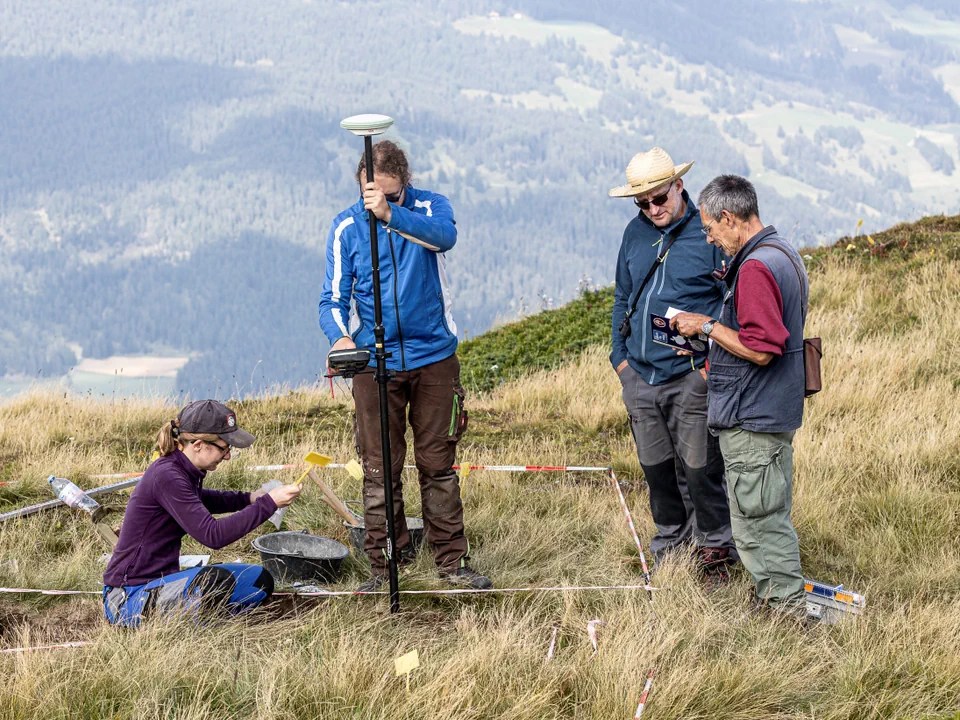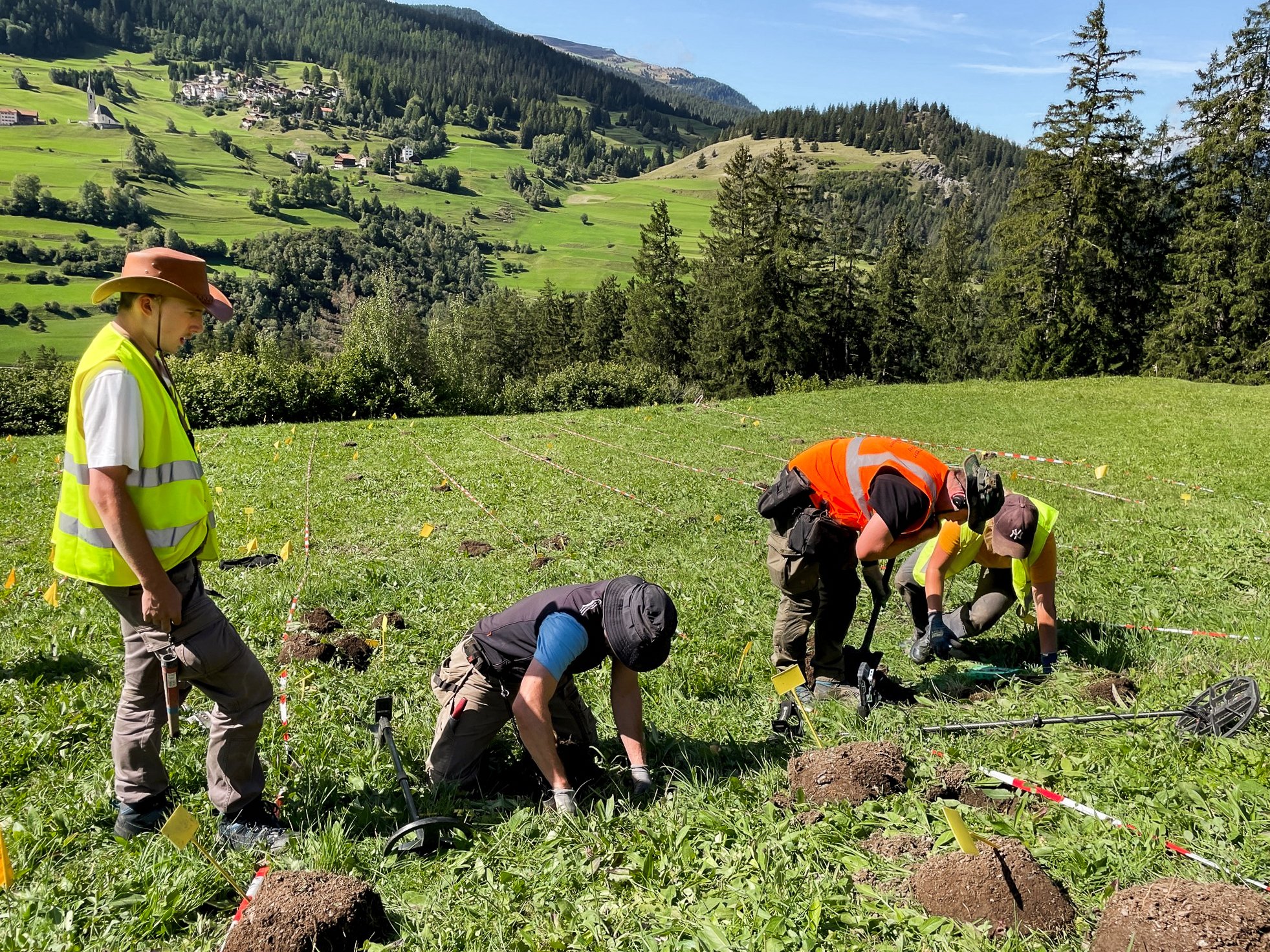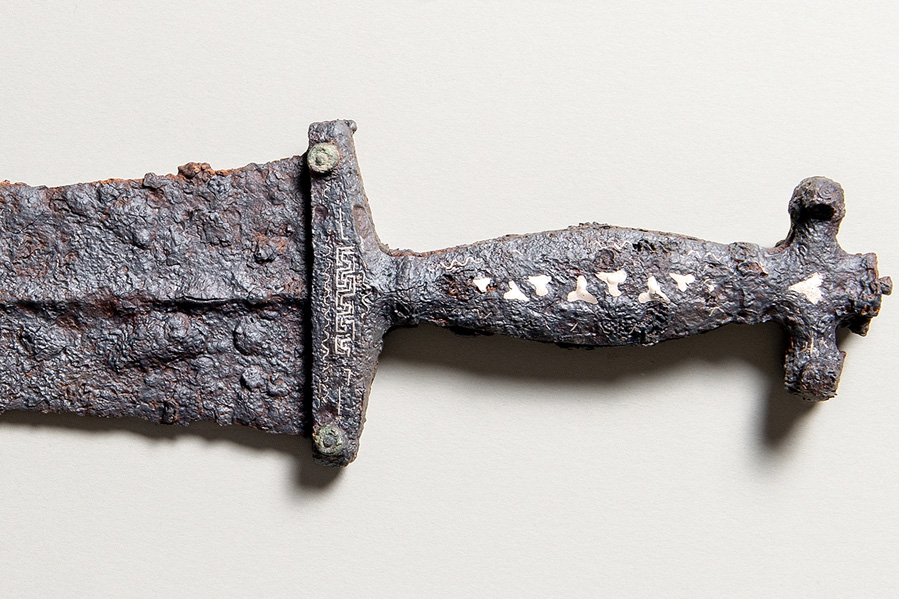
A sensational Swiss discovery thanks to volunteers: archaeology for all

The remains of a Roman military camp over 2,000 years old have been discovered at an altitude of 2,200 metres in eastern Switzerland.
The excavation in Tiefencastel, in the Oberhalbstein region of canton Graubünden, was initiated by a tip-off from a volunteer detectorist. They identified a conspicuous terrain feature in the Colm la Runga corridor using high-resolution digital LiDAR terrain data from the Swisstopo Geoinformation Centre. The Graubünden Archaeological Service has classified the find as internationally significant.
What makes this discovery so remarkable?
The site is believed to be the highest military camp of the Roman Empire ever discovered. The new evidence also provides greater clarity on the Roman campaign in the Alps, suggesting a route from Lake Como through Bregaglia, over the Septimer Pass to Tiefencastel, and onwards towards Chur and the Alpine Rhine Valley.

More
Swiss Roman battle site reveals hidden secrets of historic clash
The role of terrain data
LiDAR (Light Detection and Ranging) data, used for creating three-dimensional models such as noise registers and spatial planning maps, was crucial in this discovery. Captured by laser scanning from the air or ground, the data allowed the terrain to be measured and imaged, revealing human-made structures. Swisstopo makes LiDAR and other geodata freely available, which can be utilised in various applications.

Why is Swiss archaeology so appealing?
Switzerland is rich in Roman archaeological remains, reflecting the significant presence of the Roman Empire around 2,000 years ago. The diversity of sites and excavations allows for a deep exploration of life during that period. For many, piecing together the past – far from the fiction of Asterix and Obelix – is a fascinating challenge. As one archaeology student in Graubünden put it, “‘it’s like a puzzle, and I can really be part of solving it”.

More
Facing up to Switzerland’s Roman past
The impact of volunteer archaeology
The discovery of the Roman structures in Tiefencastel by a volunteer highlights the valuable contributions non-experts can make. Volunteers are often meticulous, performing delicate tasks by hand that would otherwise require heavy machinery. To maintain the scientific quality of their work, cantonal archaeology offices provide training and further education for volunteers.
How can archaeology enthusiasts get involved?
For those interested in pursuing archaeology, there are extensive excavation trips available both in Switzerland and abroad. Public excavations, such as those in the Roman city of Augusta Raurica in Augst, canton Basel Country, are also offered. The cantonal archaeology offices serve as the primary resource for participating in archaeological inspections, construction supervision and volunteer work. They also provide information on findings and offer guidance for enthusiasts.
Translated from German by Alexandra Andrist/ts

More
How a hobby archaeologist uncovered a Roman battle site

In compliance with the JTI standards
More: SWI swissinfo.ch certified by the Journalism Trust Initiative




























You can find an overview of ongoing debates with our journalists here . Please join us!
If you want to start a conversation about a topic raised in this article or want to report factual errors, email us at english@swissinfo.ch.